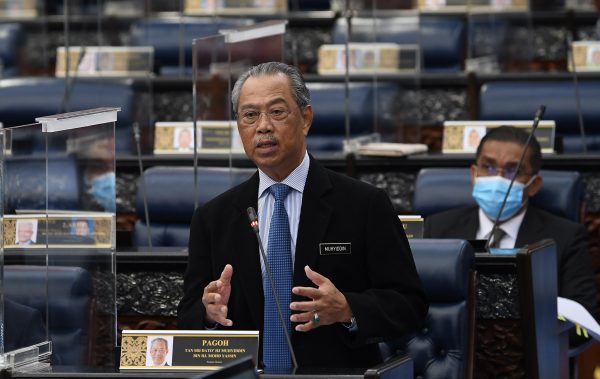It did receive strong support from Chinese and Indian voters. The party’s ability to accomplish reform was deeply affected by these statistics.
PH had a heavy reform agenda. Among other things, it aimed to repeal the repressive Sedition Act, increase the independence of the electoral commission and the courts, counter religious extremism, turn parliament into a more independent institution, tackle the egregiously partisan malapportionment of legislative seats and make the attorney general independent of government. This was a re-democratisation agenda for a country that had taken many wrong turns.
The PH government fell early this year having achieved only some of these aims. It freed the media and created parliamentary select committees, some chaired by opposition MPs. It also appointed an electoral commission with distinguished independent members, but they still remained answerable to the prime minister who appoints them. The Sedition Act was used only rarely but was not repealed. JAKIM — an Islamic development body that had curtailed religious freedom — was placed under the leadership of a progressive Muslim interested in religious tolerance. But he ran into opposition from staff members, many of them educated in the Middle East.
Under a liberal chief justice, the courts adopted many new practices designed to assure judicial integrity. A distinguished lawyer was appointed attorney general, but the office of the attorney general remained in the prime minister’s office.
Soon after the former ruling Barisan Nasional (BN) coalition returned to power in March 2020, along with defectors from PH and the collaboration of an Islamist party, new winds began to blow. With a new attorney general, sedition investigations and prosecutions were vigorously resumed. Defendants accused of corruption were freed, the reformist speaker of parliament was replaced, and Malaysia began to settle back into the authoritarian ways of recent decades.
PH’s reforms had been based on changes in personnel and practices rather than embedded in difficult-to-reverse rules and statutes — a serious error. The independence of the electoral commission survives for now because its members have fixed terms. But there was no change in the method of their appointment that would impede the next prime minister from appointing whomever he chooses. The same is true of the courts and the attorney general. Instead of new regulations and statutes, most reforms were left to depend on the undoubted good faith of incumbents. The machinery of institution building was underutilised.
The two most ceremonious but least consequential reforms were proposed without apparent anticipation of the advantage their proposal gave to the opposition. The PH government proposed to ratify the International Convention on the Elimination of All Forms of Racial Discrimination (ICERD) and the Rome Statute on the International Criminal Court.
BN and the Pan-Malaysian Islamic Party (PAS) quickly mobilised opposition to ICERD, ostensibly because it would eliminate Malaysia’s extensive programs of affirmative action for Malays. They also opposed the Rome Statute, supposedly because it might subject the country’s king, who nominally commands the armed forces, to international prosecution. Vast crowds were assembled by BN and PAS to defeat these initiatives as ‘anti-Malay’, just as the opposition had earlier objected to the appointment of some non-Malays and non-Muslims to cabinet positions as hostile to Malay interests.
For several decades, some politicians have spread doctrines of Malay supremacy among the Malay populace. PH’s non-Malay support base made Malays, perennially fearful of losing their status, suspicious of its motives. That government had not convinced Malays of the benefits of its reform program for electoral integrity and the rule of law.
Early by-elections after PH took office showed an improvement in Malay support, but the trend was inconsistent. In November 2019, in a by-election in the state of Johor, a BN candidate defeated a candidate of prime minister Mahathir Mohamad’s own component party from PH. Analyses of the vote showed that support for PH had declined dramatically among both Malays and non-Malays. From then on, chances for reform were slim, and it was only a couple of months before ambitious PH leaders led a group of their followers to the then-opposition parties.
In severely divided societies, governments without very substantial ethnic-majority support are vulnerable. PH’s inability to produce durable policy change due to a deficiency in support from the ethnic majority is similar to the failure of a reform government in Sri Lanka to produce a new constitution respecting the rights and interests of its minority communities. Elected in 2015 with less than 50 per cent of the votes of the majority Sinhalese, that government abandoned its constitutional project as new elections approached. Governments lacking full support of a majority ethnic group need not only to be right — they must be exceptionally far-sighted and strategic.
Donald L Horowitz is the James B Duke Professor of Law and Political Science Emeritus at Duke University.

